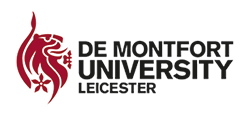An Senior Leader Apprenticeship considered for professional strategic leaders
Enrolment and programme dates to be confirmed. If interested, please contact us.
Enquire here
De Montfort University (DMU) and the National Structural Integrity Research Centre (NSIRC) have partnered to create a unique Executive MBA that addresses and responds to the changing demands and dynamic situations of modern executive roles. This programme, co-designed by DMU and NSIRC at TWI Ltd, is to help apprentices develop rich and versatile skill sets, enabling graduates to manage the complex social, cultural, technical and organisational issues that arise in contemporary business markets and environments.
Postgraduate apprenticeships at TWI with NSIRC
Alongside the executive MBA for technical professionals, NSIRC also offers an MSc apprenticeship in leadership and management tailored to engineering. While both are management apprenticeships, MBA is suited senior managers and executives, while the MCs is designed for those with managers an team leaders.
Who is suitable for an Executive MBA?
An Executive Masters of Business Administration (MBA) course like this on is a senior leader apprenticeship that suits professional strategic leaders and senior managers within private, public or third sector organisations. Learning outcomes from the programme can be applied to any size of business, with the theory and practices also contributing to career development.
Qualifications
Upon successful completion, apprentices of this executive MBA will obtain:
- An Executive MBA, awarded by De Montfort University
- Chartered Management Institute (CMI) Level 7 Diploma in Strategic Leadership and Management - What is a chartered manager?
- Senior Leader Master’s Degree Apprenticeship

During the End Point Assessment, students of the apprenticeship will also have the possibility of gaining a Chartered Manager status (CMgr MCMI).
The awarding apprenticeship MBA UK University
De Montfort University is from the City of Leicester in the United Kingdom, producing high standards of undergraduate and postgraduate research from world-class facilities. The University has been recognised and ranked Gold by the Teaching Excellence Framework, an award that considers the impact of student research and excellence in teaching and learning.
DMU is also ranked in the Top 50 universities in the world for sustainability in Times Higher Education (THE) University Impact Rankings for 2019. It became an affiliate university and partner of NSIRC in July of 2020. The University also has a renowned business school, Leicester Castle Business School.

TOP
Course content
(30 credits each)
- Leadership practicum
- Financial decision making
- Strategy in turbulent times
- Social entrepreneurship and innovation in new settings
- Business and sustainability
- Future of work and organisations
Leadership practicum
Part of this level 7 apprenticeship will examine attitudes on leadership in modern organisations. Added to that, students/apprentices of this MBA will be given multiple methods to contextualise personal experiences from work-places.
Financial decision making
Examining numerical data and the dynamics of statistical information connected within your current business position, style of management and enterprise. The module will include case studies that explain correct interpretation and how to efficiently harness financial information towards adding weight to business decisions.

Strategy in turbulent times
This section will cover business analytics with the added benefit of an opportunity to improve your technique by using real case studies. Apprentices will be guided by typical approaches to strategy and development, giving students practical experience. There will be an opportunity for reflection on professional development to date, examining why some strategies worked, while others did not.
Social entrepreneurship and innovation in new settings
Industry needs new approaches and innovative solutions to the global financial impact of coronavirus. Taking into account academic and professional experiences, this module will add new circumstances that demand practices of entrepreneurial management behaviours around many sustainable development goals. Students will be presented with models and debates in the field of social entrepreneurship and social innovation, at the same time combining research methods and global field research.
Business and sustainability
Part of NSIRC's mission is to provide postgraduate education within an industrial environment, responding to the needs of industry. This module addresses the need for current and relevant research delivered in an applied manner so as to reinforce effectiveness, judgement and confidence in a contested area of business and sustainability. Within this module, students will also examine the latest research with a view to critically reflect upon issues which are essential to international business policy.
Future of work and organisations
For this final module, students will analyse a broad selection of thought-provoking and interesting topics. The module will include a series of company visits with the possibility of inter-institutional collaborative seminars. You will relate the material of the module to the other modules of the programme drawing out inter-disciplinary and cross-modular themes and learning.
Residential trips
The opportunity is given to students to attend residential trips in the United Kingdom or International*, specific to the content of this Executive MBA course. 2018 saw apprenticeships team travel to Northern Thailand for a five-day residential trip arranged to coincide with the Social Entrepreneurship and Innovation in New Settings module. Working with the renowned Warm Heart Worldwide foundation, a community development organisation supporting grassroots entrepreneurship and innovation, apprentices developed entrepreneurial ideas and possibilities, collaborating with the various stakeholders to create sustainable, practical and commercial business solutions.
Duration and location
Taught over 24 months, this blended work-based programme includes six subject modules (above). The teaching time will be delivered in two blocks of three study days per module.
Learning will be offered through a blended approach that will include a series of face-to-face and online seminars, real-world projects, interactive class room activities, simulations and field trips. Taught days will be complemented with distance learning and self-directed study.
A Cambridge MBA course at TWI
MBA course in Cambridge - Although being predominantly work-based, elements of the programme will require students to travel to Cambridge, the home of NSIRC and TWI. Famous for the University of Cambridge (a partner of NSIRC), the city is at the heart of UK digital and medical innovation and technology.
MBA Apprenticeship Levy London connected
Cambridge is just 1 hour 30 minutes drive north of London, or 50 min directly by train. Through visiting the city, executive MBA students will attend for workshops designed specifically to give senior executives of this MBA programme the opportunity to complete team projects and develop knowledge and skills that can only be done so in person.
TOP
Assessment
The Masters programme is designed to enable apprentices to apply the academic theory to their organisation and role. There are a variety of assessment methods including; reports, essays, group presentations, reflective diaries and case studies. For the final six months of the programme, the apprentices will conduct a work-based project. It will combine the knowledge they have accumulated from studying the various modules and demonstrate their new recognition of what management can achieve and how this knowledge can be applied within their business. Each apprentice will need to create a portfolio that captures the new learnings, techniques and practices acquired during the course. The resulting portfolio will be part of the End Point Assessment of each student, allowing apprentices time to reflect, organise and assess their progress. Students will have access to Portfolio Software that can include the reports and education from the MBA programme, along with important advice on correctly using the software itself.
Fees and funding
There are no tuition fees to pay.
The total fee of £18,000 per employee (for the whole 2½ year course) will be met by the UK government and the employer through the apprenticeship levy.
This programme is one of two apprenticeship levy courses delivered at NSIRC, and is aligned to the Level 7 Senior Leader Master’s Degree Apprenticeship standard, designed by employers in partnership with the Chartered Management Institute (CMI).
TOP
The programme is designed with professionals in mind, and this is reflected in the entry requirements. All applicants need to be employed by an organisation who will support the individual’s participation in the programme.
Applicants require:
- A minimum of 3 years professional experience and an honours degree or significant professional experience (three years minimum), and a relevant professional qualification.
TOP
If you have any further queries, please send them to NSIRC Team member Hannah Stedman via enquiries@nsirc.co.uk.
TOP
To enquire about the course, or to simply ask for more information about MBA degree apprenticeships, please email Hannah Stedman via enquiries@nsirc.co.uk.
TOP
Other pages that users visited...
A leadership apprenticeship for professionals seeking to enhance their skills and knowledge through an apprenticeship training MSc course.
*Further costs will apply for International residential trips.